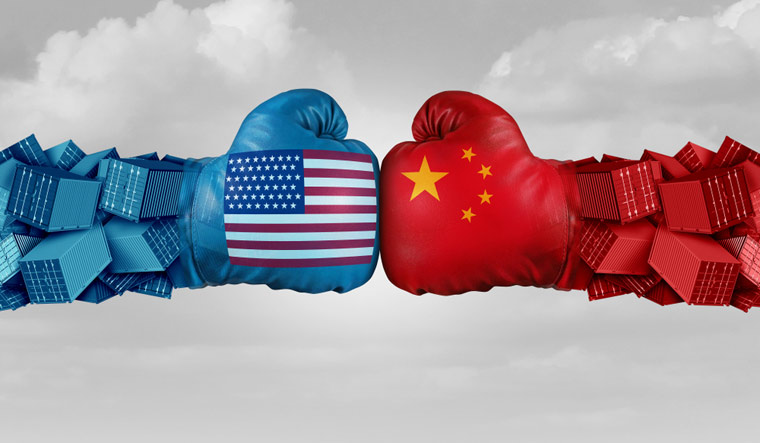The US and China are unlikely to call a truce anytime soon. With American elections round the corner, President Donald Trump has found the perfect new enemy: China. The rivalry between both the countries is only likely to worsen.
“We are already seeing a sharpening of confrontation between US and China,” said former foreign secretary Shyam Saran speaking at a webinar organised by the Institute of Chinese Studies on Wednesday. “And [amid] the impending elections, I suspect, the confrontational tone is going to sharpen.”
The chorus against China has got stronger, with even countries like France and Germany becoming more critical. There was a certain “assertiveness” by China to questions being asked, Saran said, which could be seen by the tone adopted by the Chinese foreign office spokesperson. “It is quite sharp,” he said.
It was also witnessed by Chinese ‘activism’ in the South China Sea, the recent arrests of pro-democratic leaders in Hong Kong and the way China has dealt with Taiwan. “I don’t see China adopting a more aggressive stand with India,” he said. However, he did acknowledge that India’s blocking of Chinese foreign direct investment into India through the automatic route had met with a reaction from China. The spokesperson of the Chinese Embassy in India had recently tweeted “Chinese investment supports #India’s industry development, creates job & promotes win-win cooperation. Our companies actively help India fight #COVID 19. Hope India revise the discriminatory practices & foster open, fair & equitable business environment.’’
China had made “threatening noises” on the obstacles placed before Huawai’s 5G entry in India, Saran added. However, it was also to a reaction to what China saw as “unfair” reaction to Europe too.
Going beyond just the diplomatic impact of the coronavirus on China’s foreign policy—which has been trying to peddle the story of China being the supplier of public goods during a global crisis—the webinar also looked at how the crisis had ramifications within the country. China has managed to restart its economy; but there has been a constriction for the first time in forty years, Saran pointed out. The Chinese economy had shifted to 60 per cent consumption. The government was handing out cash vouchers to help push this, he added. “There is still a hangover of the virus which hangs over peoples’ heads,” he said. Despite restrictions that were eased, the number of people going out to restaurants to eat has reduced.
“China is less dependent on exports,” Saran said. “The current figure of dependency on exports was 19 per cent.” The exports might not play a big part in the revival of the economy, he said, as global supply chains had been affected. Japan had promised over $2 billion to move Japanese businesses based in China to Japan and 23.5 billion yen to companies seeking to move to another country.
Experts feel the handling of the crisis is likely to impact the leadership position of Xi Jinping within the Communist Party. However, Saran feels that given the United States ongoing tensions with China, Jinping may be safe for now, though an impact is later likely.


